US President Donald Trump has reignited controversy by granting refugee status to a group of Afrikaners from South Africa, citing what he described as a “genocide” against white farmers. Nearly 60 Afrikaners have arrived in the United States following his administration’s decision, which allowed them to process their applications at the US embassy in Johannesburg and board a chartered flight. These scenes have raised questions globally about whether white South Africans, particularly farmers, are being systematically targeted and persecuted.
Afrikaners, also known as Boers, are a distinct cultural group descended mainly from Dutch, German, and French settlers who arrived in South Africa in the 17th century. Speaking Afrikaans a language closely related to Dutch Afrikaners have played a central role in the country’s colonial and apartheid history. Under apartheid, which was introduced in 1948 by the Afrikaner-led government, black South Africans were forcibly segregated, denied basic rights, and economically marginalized. The apartheid era ended in 1994 with the election of Nelson Mandela, ushering in a new era of majority rule under the African National Congress (ANC).
Today, Afrikaners number around 2.5 million roughly 4% of South Africa’s 60 million population. Despite the transition to democracy, the legacy of apartheid still affects the social and economic landscape. Claims of a genocide against white South Africans, particularly farmers, have circulated for years, especially among right-wing groups abroad. Trump amplified these claims during his first presidency and has continued to do so, arguing that white farmers are being “brutally killed” and their land “confiscated.”
However, no major political party in South Africa, including those representing Afrikaner interests, supports the claim that genocide is taking place. These assertions have been dismissed by the courts and contradicted by available data. In February 2025, a South African judge rejected the genocide narrative in a high-profile inheritance case, calling it “clearly imagined” and “not real.” Crime statistics for the last quarter of 2024 showed that 6,953 people were murdered across the country. Of these, only 12 were killed in farm-related incidents. Importantly, victims included not just white farmers but also farm dwellers and employees, many of whom were black.
Trump’s decision is also backed by Elon Musk, who was born in South Africa. Musk has criticized the country’s “racist ownership laws,” alleging that his satellite internet company Starlink cannot operate in South Africa because it lacks 30% black ownership a requirement under South African regulations intended to redress historical inequalities. The country’s Independent Communications Authority confirmed that Starlink had not applied for a license. Musk also accused the Economic Freedom Fighters (EFF), a radical left-wing party, of promoting genocide through its use of politically charged songs such as “Shoot the Boer.” However, South Africa’s Supreme Court of Appeal ruled that these songs, rooted in anti-apartheid struggle history, are not literal incitements to violence but rather symbolic expressions of political resistance.
South Africa’s President Cyril Ramaphosa has firmly rejected the genocide claims. He argued that those seeking refugee status are refusing to accept the constitutional changes and social transformation underway in the country. He also defended a new land reform law signed in January, which aims to address the historic land dispossession of black South Africans. Although the bill has been challenged by the Democratic Alliance (DA)—the ANC’s main coalition partner—on grounds that it threatens property rights, the government denies any ongoing land grabs from white farmers.
Despite these reassurances, tensions remain. The employment landscape continues to reflect the racial imbalances of the past, with white South Africans occupying over 60% of top management roles despite being less than 8% of the economically active population. The government has implemented legislation like the Broad-Based Economic Empowerment and Employment Equity Acts to promote inclusion, but these have also faced criticism for enabling corruption and cronyism. In some cases, government positions have been limited to specific racial groups to meet equity targets, sparking political debate.
While Trump’s refugee offer sparked interest among Afrikaners—an estimated 70,000 expressed interest in relocating to the US—it’s a small fraction of the overall population. Most Afrikaner political leaders remain committed to staying in South Africa. In a recent parliamentary session, Freedom Front Plus leader Corné Mulder emphasized that Afrikaners are “bound to Africa” and intend to build a future within the country. Even Solidarity, a prominent Afrikaner lobby group, posted an article titled “Ten Historical Reasons to Stay in South Africa” in response to Trump’s invitation.
The US embassy in South Africa has clarified that its refugee resettlement policy applies to individuals of any minority group, regardless of race, who can demonstrate credible fears of persecution. According to South Africa’s most recent census, the Coloured community—an officially recognized group of mixed racial origin—represents 8% of the population, while white people make up about 7%.
Ultimately, while crime and economic insecurity are real concerns in South Africa, the claim of an orchestrated genocide against white South Africans lacks credible evidence. It remains a politically loaded narrative rather than a substantiated fact, often fueled by misinformation and used to serve particular agendas.



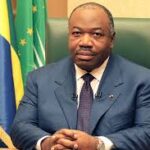
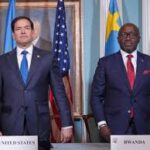
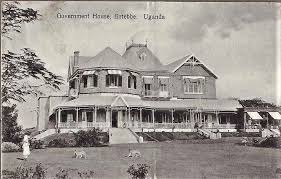

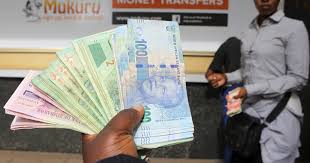
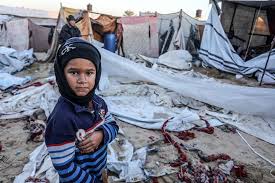
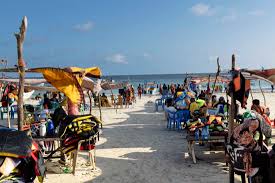



Leave a comment